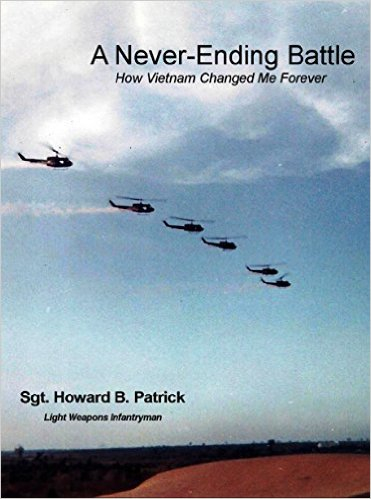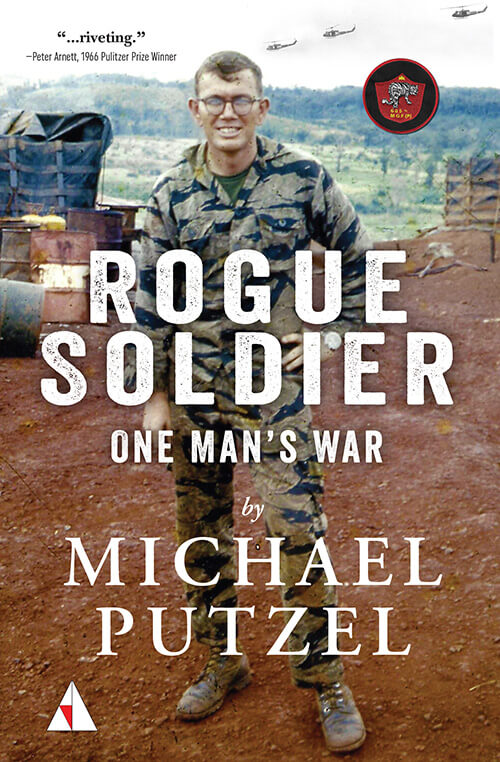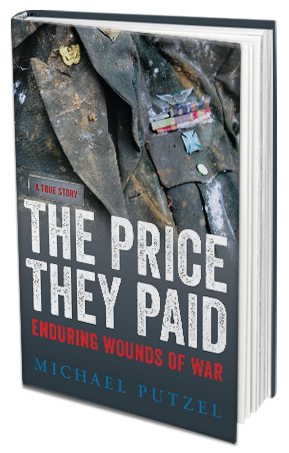Blog
One Grunt’s Lifelong Struggle
Posted by • September 13, 2015
Howard Patrick didn’t expect to be drafted. He was married, expecting a baby and had a job in the hot new world of high technology, working for IBM, the top of the mountain in those days. When his induction notice arrived, he was stunned–and frightened. He had had student deferments earlier and thought his marriage would keep him out of the service, but it didn’t. He considered fleeing to Canada but decided he couldn’t desert his country or screw up the future for his fledgling family. He also figured his technical expertise would land him a secure post running or fixing computers for the Army. It didn’t.
Instead, he was awarded the MOS (military occupational specialty) known as Eleven Bravo: light weapons infantryman. He would be a lowly grunt. In those days, it translated to being a rifleman humping the boonies in Vietnam. Although he badly sprained an ankle in advanced training, an improperly treated injury that would net him partial disability years later, Howard was sent on to noncommissioned officer training, promoted to sergeant and shipped to Vietnam.
It was 1968, the height of the war, and Patrick was made a squad leader in a reconnaissance unit, sneaking through the jungled mountains of Quang Tri province, searching for the enemy with a handful of compatriots, sometimes exchanging fire with similarly armed Viet Cong or North Vietnamese riflemen. The reluctant warrior found himself living on high alert, setting ambushes, crouching in holes listening in the dark for sounds of enemy attackers, occasionally dodging “friendly fire” from other American fighters who mistook his recon unit for the enemy. After six months, he was transferred to a “civil affairs” unit that flew around in helicopters tossing out thousands of leaflets imploring the enemy to surrender and switch sides to help the South Vietnamese win the war. Near the end of his tour, his helicopter got hit by ground fire that knocked out its engine, and the pilot made a rough, but successful emergency landing that terrified Patrick.
He returned to his young family, enjoyed a succession of challenging jobs in the computer field, then found his life spiraling downward as he grew increasingly anxious, short-tempered and dogged by the realization that he had repressed all memory of the war and the buddies who shared his experience.
In an independently published memoir, Patrick offers a grunt’s-eye view of war and a worrisome account of his long, discouraging battle with post-traumatic stress and his extensive efforts to find effective help. The book, A Never-Ending Battle: How Vietnam Changed Me Forever, is a painfully honest reconstruction of his struggle that he wrote down in hopes of guiding other sufferers.
“If you are one of the people I’m hoping my story helps–a combat vet with post-traumatic stress issues or the loved one of a sufferer–the question is where do you go from here,” he writes. Although his book recounts a nightmarish series of frustrating, even damaging, encounters with the VA system run by the Department of Veterans Affairs, Patrick traced his ultimate recovery to a VA Vet Center near his home and to the combat veterans he met in group therapy who helped each other conquer the demons that only they shared.
In a poem he wrote to his wife Judy in gratitude for sticking with him through the maelstrom, the old soldier wrote:
While I came back in one piece
and for years seemed okay,
I had no idea that PTSD
was busy gnawing away.Physically sound
but mentally wounded,
no medal for that
not even a mention.







